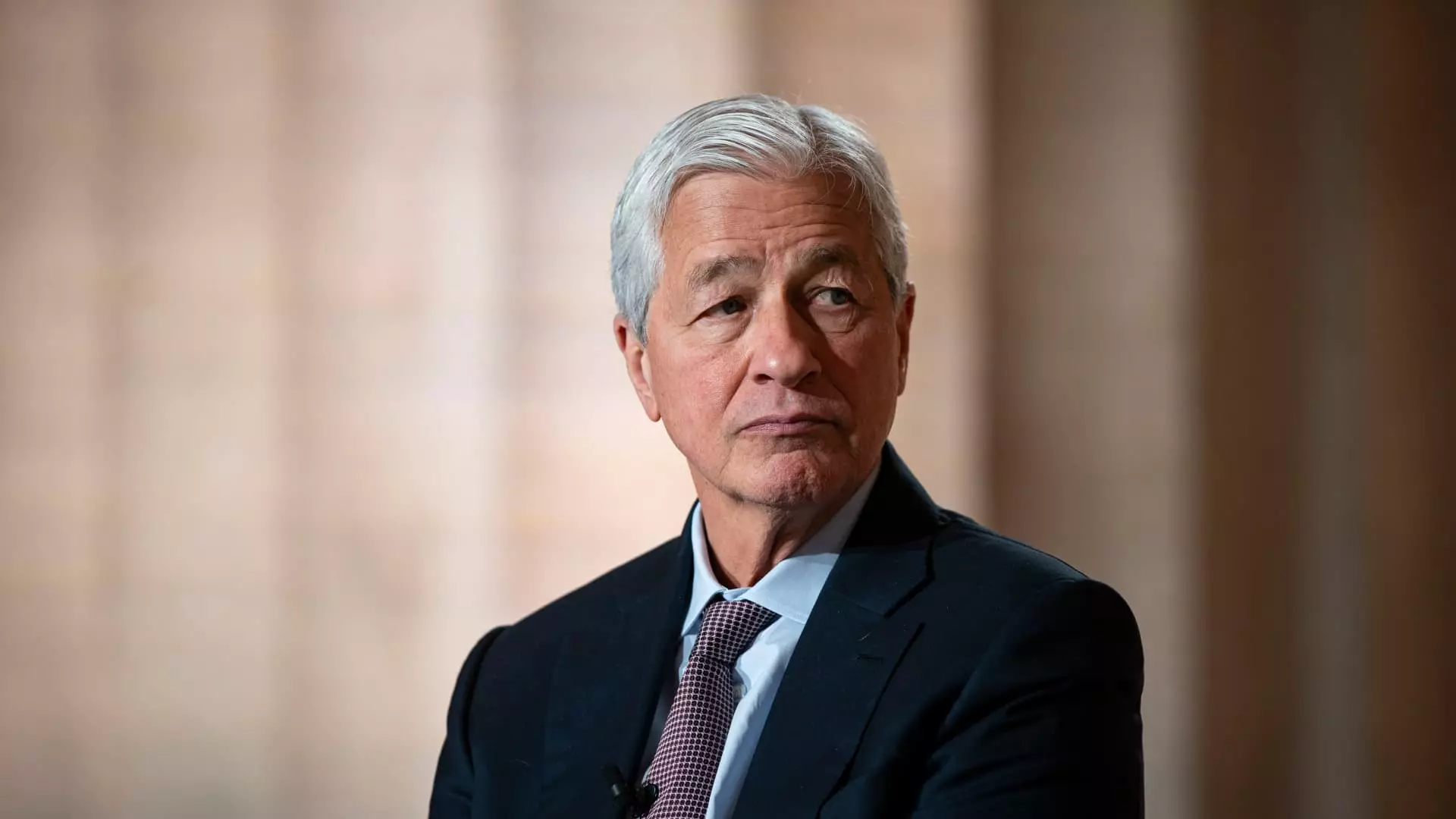The financial landscape of the United States is facing ominous forecast as the possibility of recession looms larger with every passing day. Jamie Dimon, the prominent CEO of JPMorgan Chase, recently articulated a chilling perspective on the U.S. economy’s future, suggesting a recession is not only likely but imminent. This sentiment is intensified by the ongoing trade war between the United States and China, which has morphed into a battleground of tariffs and retaliation. Dimon’s commentary serves as a wake-up call to both investors and everyday citizens alike: the tumultuous waters of financial markets signal turbulence ahead, raising the question of resilience amidst uncertainty.
What we are witnessing is not just an isolated incident but rather a seismic shift precipitated by national policies that destabilize markets on a global scale. Dimon pointedly referenced a staggering 2000-point drop in the Dow Jones Industrial Average, underscoring how such dramatic declines create a feedback loop of fear and apprehension. As consumer confidence wanes, the pervasive dread of losing retirement savings becomes a catalyst for widespread economic retrenchment. The harsh reality is that most Americans, who already feel the weight of financial insecurity, might find their fears manifest into actual hardships if a recession unfolds.
The Dark Effects of Tariffs
The impact of trade tariffs cannot be overstated. Following the recent announcement of an unprecedented 84% tariff on U.S. goods by China, concerns multiply. This move, an escalation in the tit-for-tat trade war, feeds into the very uncertainty that stock markets despise. The implications of this aggressive tariff strategy are multi-faceted, reaching far beyond immediate market reactions. When companies face elevated costs due to such tariffs, it’s not simply their profit margins at stake; rather, it’s the jobs and livelihoods of American workers that hang in the balance.
Moreover, Dimon’s prior support for tariffs, which he justified as a means to safeguard national interests, now appears increasingly naive or shortsighted. The economic foundation built on competitive markets is crumbling under the weight of protectionism, and the collateral damage is palpable. Consumers may face higher prices on everyday goods, while businesses tread the perilous line between passing costs onto consumers or absorbing them— a dilemma that invariably leads to layoffs and diminished growth.
Market Psychology: A Perilous Cycle
Dimon’s insights into market psychology also warrant scrutiny. He suggests that while markets can frequently misjudge situations, they are often correct when uncertainty cloaks the economic outlook. The psychological impact of falling markets cannot be understated; as fear takes root, decision-makers tend to hunker down, creating a self-reinforcing cycle of contraction. This dynamic should serve as a warning—when economic indicators reflect despair, those same indicators can perpetuate a narrative of decline that breeds further anxiety among consumers and investors alike.
Crucially, measures must be taken to counteract this pessimism. Dimon urges the federal government to pursue trade negotiations earnestly, signaling that proactive engagement may be the antidote to escalating fears. Unfortunately, the political climate does not lend itself easily to such constructive efforts. The polarization in Washington impedes bipartisan cooperation, creating an atmosphere where rational discourse about trade and economic policy is stifled by partisan bickering.
A Leadership Vacuum
In the midst of this economic chaos, the void of effective leadership becomes glaringly apparent. Business leaders like Dimon advocating for constructive solutions need allies in government to begin negotiating the trade agreements that could stabilize markets. Yet, the disconnect between Wall Street and Washington serves only to deepen the crisis. How can American businesses thrive in an environment plagued by systemic inefficiency and lack of coordination?
Today’s challenges require a keen understanding of the delicate balance between economic growth and protective policies. A commitment to intelligence-driven negotiations and mutually beneficial partnerships seems to be the only viable route forward to avoid a recession. Those in leadership positions, whether in the private or public sector, must be held accountable for the economic realities they create, as voters and consumers alike seek results over rhetoric.



Leave a Reply